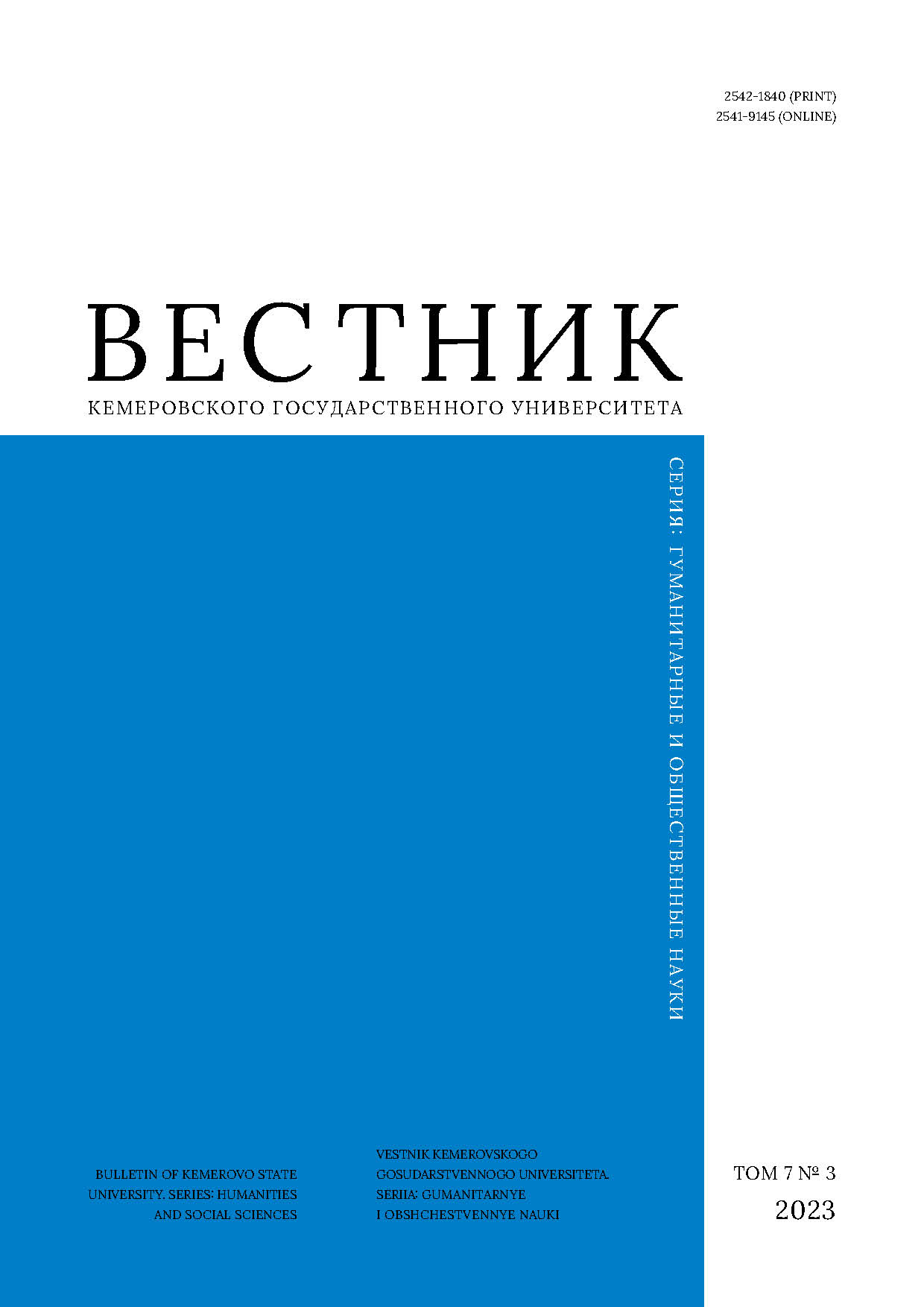Kemerovo, Kemerovo, Russian Federation
The concept of democracy borders on that of democratic tradition. However, the degree to which these two concepts overlap still remains an understudied issue. Democracy is an ambiguous and expanding notion that covers much more than political regime and political rights. In fact, democracy is associated with a mechanism for realizing the totality of human rights. The paradox is that, with its numerous definitions and patterns, democracy has neither ideal model nor universal standards. As a result, most approaches to the ever-elusive meaning of democracy appear inefficient. The present study specified the meaning of democracy by clarifying the content of democratic tradition, i.e., socially-inherited forms of social management that are based on the principles of electability, public representativeness, collegial decision-making, majority, accountability and responsibility of elected representatives to the community, etc. The author applied this approach to the current problems of suffrage and referendum law.
democracy, democratic tradition, suffrage, elections, referendum, all-Russian voting, voting rights
1. Vedeneev Ju. A., Zaytsev I. V., Korablin V. E., Lugovoy V. V., Tylkin V. V. The lectures on history of elections and suffrage. Kaluga: Simvol, 2002, 692. (In Russ.)
2. Vedeneev Ju. A., Zaysev I. V., Lugovoy V. V. Institute of elections in the history of Russia. Sources and testimonies of contemporaries. Views of researchers of the XIX - early XX centuries. Moscow: NORMA, 2001, 784. (In Russ.)
3. Huggenberger B. Theory of democracy (dictionary of political notions). Foreword by A. Frenkin. Polis. Political Studies, 1994, (4): 136-148. (In Russ.) https://elibrary.ru/eqvotx
4. Schumpeter J. A. The theory of economic development. Capitalism, socialism and democracy. Moscow: Eksmo, 2008, 864. (In Russ.)
5. Morgan L. H. Ancient society or researches in the lines of human progress from savagery, through barbarism to civilization. Leningrad: Institute of the peoples of North under the Central Executive Committee of USSR, 1935, XVI, 351. (In Russ.)
6. Karamzin N. M. About the Slavs and other peoples who made up the Russian state. In: Karamzin N. M. History of the Russian State. 5th ed. St. Petersburg: Tip. Eduarda Pratsa, 1842, book 1, vol. 1, 17-68. (In Russ.)
7. Solovyev S. M. Essays. Book I. The History of Russia since ancient times. Moscow: Mysl, 1988, vol. 1-2, 797. (In Russ.)
8. Isaev I. A. History of Russian state and law. 3th ed. Moscow: Iurist, 2004, 797. (In Russ.) https://www.elibrary.ru/qvsujf
9. Omelchenko O. A. General history of state and law. 3th ed. Moscow: TON-Ostozhe, 2000, Vol. 1, 528. (In Russ.)
10. Kim Yu. V. Electoral law. 2nd ed. Moscow: Iurait, 2023, 388. (In Russ.) https://www.elibrary.ru/atvwsf
11. Shushania Sh. S. Digitalization of the electoral procedure and electoral rights in the digital era. Iurist, 2022, (1): 55-61. (In Russ.) https://www.elibrary.ru/ipxipk
12. Grishin N. V., Popova O. V. The potential and prospects of the movement against Internet voting: an assessment of the Russian situation in the context of world experience. The State and Citizens in the Electronic Environment, 2022, (6): 24-33. (In Russ.) https://doi.org/10.17586/2541-979X-2022-6-24-33
13. Libanova S. E., Bylinkina E. V. The blockchain technology: opportunities and risks of application in the electoral process. Konstitutsionnoe i munitsipalnoe pravo, 2021, (2): 34-38. (In Russ.) https://www.elibrary.ru/rvcgbj
14. Kolyushin E. I. The 2020 electoral reform in view of electoral law principles. Konstitutsionnoe i munitsipalnoe pravo, 2020, (12): 55-61. (In Russ.) https://www.elibrary.ru/rueafm
15. Kolyushin E. I. The problem of quasi-supremacy of law in electoral law. Konstitutsionnoe i munitsipalnoe pravo, 2022, (6): 51-56. (In Russ.) https://www.elibrary.ru/bscvwm
16. Avakyan S. A. The Constitution of the Russian Federation: results of development. Konstitutsionnoe i munitsipalnoe pravo, 2008, (23): 3-10. (In Russ.) https://www.elibrary.ru/kdylwt
17. Luchin V. O., Mazurov A. V. New Law on the Referendum. Pravo i politika, 2004, (8): 4-9. (In Russ.)
18. Sergeev A. A. On limiting the subject of the referendum in the Russian Federation. Konstitutsionnoe i munitsipalnoe pravo, 2008, (19): 7-12. (In Russ.) https://www.elibrary.ru/jtlskh
19. Komarova V. V. Referendum and similar forms of direct democracy: correlation and problems. Konstitutsionnoe i munitsipalnoe pravo, 2005, (9): 16-18. (In Russ.) https://www.elibrary.ru/oixmvb
20. Kochev V. A., Romashov P. A. Constitutional legal nature of the referendum institution. Vestnik Permskogo universiteta. Juridicheskie nauki, 2019, (45): 386-417. (In Russ.) https://doi.org/10.17072/1995-4190-2019-45-386-417
21. Ilyin I. A. On the essence of justice. Moscow: Rarog, 1993, 235. (In Russ.)




















